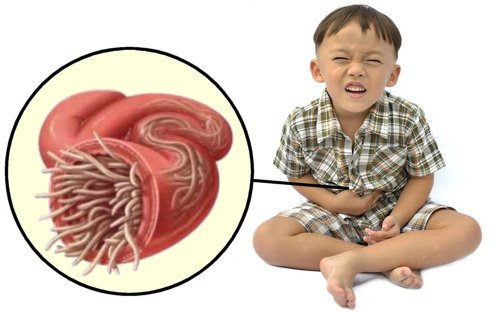Parasitic infections in humans are a significant global health concern, affecting millions of people annually. Different types of parasites, including protozoa, helminths, and ectoparasites, can cause infections that can range from very uncomfortable to potentially fatal. Understanding the risks associated with parasitic infections and the available treatment options is crucial for maintaining health and preventing the spread of these infections.
Understanding Parasitic Infections
Parasitic infections occur when parasites invade the human body, where they can live, reproduce, and cause harm to the host. Common parasitic infections include malaria, caused by protozoa, intestinal worms like roundworms and tapeworms, and external parasites such as lice and mites. These infections are typically transmitted through contaminated food, water, soil, or direct contact with infected individuals or animals.
Risks Associated with Parasitic Infections
Parasitic infections can lead to a variety of health complications depending on the type of parasite and the severity of the infection. Some common symptoms of parasitic infections include:
-
Gastrointestinal Issues: Parasites like tapeworms and roundworms often reside in the intestines, causing symptoms such as diarrhea, abdominal pain, nausea, and vomiting.
-
Nutritional Deficiencies: Parasites can absorb nutrients from the host, leading to malnutrition and deficiencies in essential vitamins and minerals.
-
Chronic Fatigue: The body’s immune response to parasitic infections can result in persistent fatigue and weakness.
-
Skin Problems: Ectoparasites like lice and mites cause itching, rashes, and other skin irritations.
-
Organ Damage: In severe cases, parasites can migrate to vital organs like the liver, lungs, or brain, causing significant damage and potentially fatal complications.
Treating Parasitic Infections
Treating parasitic infections effectively requires accurate diagnosis and appropriate medication. The choice of treatment depends on the type of parasite, the location of the infection, and the severity of the symptoms.
-
Antiparasitic Medications: These are the primary treatment for most parasitic infections. Medications like fenbendazole are commonly used to treat a range of parasitic infections in humans. Fenbendazole, originally developed for veterinary use, has shown promise in treating human parasitic infections as well. It works by disrupting the energy metabolism of parasites, leading to their eventual death.
For those seeking to Buy Fenbendazole for Humans, it’s essential to ensure that the product is sourced from a reputable provider. You can conveniently buy fenbendazole for humans at the Generic Pills Australia Online Pharmacy, where you can find a range of antiparasitic medications tailored for human use. -
Supportive Care: In cases of severe infections, patients may require additional treatments such as fluids to prevent dehydration, nutritional support to address deficiencies, and even surgery to remove large parasitic masses.
-
Preventive Measures: Preventing parasitic infections involves practicing good hygiene, consuming safe food and water, using protective measures like bed nets to prevent mosquito bites, and regularly deworming pets and livestock.
Preventing Parasitic Infections
Prevention is key in reducing the spread and impact of parasitic infections. Here are some effective strategies:
-
Hygiene Practices: Washing hands regularly with soap and water, especially before eating and after using the bathroom, is essential in preventing the spread of parasites.
-
Safe Food and Water: Ensuring that food is cooked thoroughly and drinking only clean, filtered, or boiled water can reduce the risk of ingesting parasites.
-
Use of Protective Clothing: In areas where certain parasites are prevalent, wearing protective clothing and using insect repellent can prevent bites from mosquitoes and other insects that transmit parasites.
-
Proper Sanitation: Maintaining clean living environments and disposing of waste properly can reduce the risk of contamination by parasitic eggs and larvae.
-
Regular Screening: In endemic areas, regular screening for parasitic infections can help in early detection and treatment, reducing the spread of infection.
The Importance of Access to Medication
Access to effective antiparasitic medications is crucial in managing and treating parasitic infections. Unfortunately, in many parts of the world, particularly in low-income regions, access to these medications is limited. This highlights the importance of global health initiatives aimed at improving access to essential medicines and healthcare services.
For individuals in Australia, Generic Pills Australia Online Pharmacy offers a convenient and reliable source for purchasing medications like fenbendazole. Their online platform provides easy access to a wide range of treatments, ensuring that those in need can obtain the necessary medications to combat parasitic infections effectively.
Conclusion
Parasitic infections remain a significant public health challenge, particularly in regions with limited access to clean water, proper sanitation, and healthcare. Understanding the risks and symptoms associated with these infections, along with the available treatment options, is essential for protecting yourself and your loved ones.
By taking preventive measures and seeking timely treatment, you can minimize the impact of parasitic infections on your health. If you suspect a parasitic infection, consult a healthcare professional for accurate diagnosis and treatment. For those looking to purchase effective antiparasitic medications, you can buy fenbendazole for humans from trusted sources like Generic Pills Australia Online Pharmacy, ensuring you receive quality treatment when you need it most.

